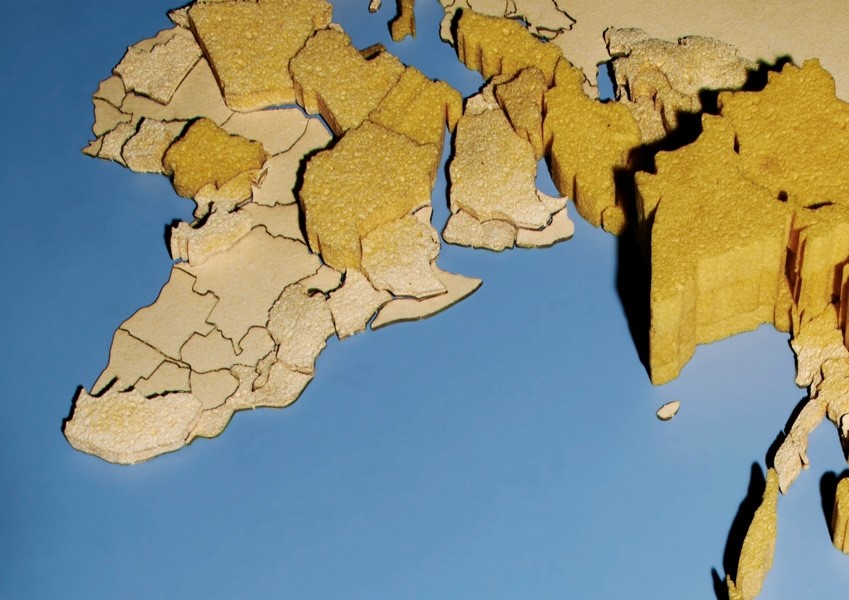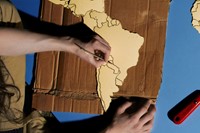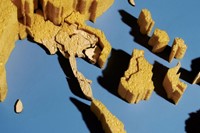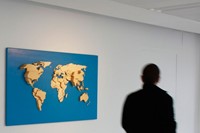After years of dutifully measuring our carbon footprint, a new raft of art and design projects is putting our (surprisingly large) water footprint under the microscope. Mapping the demand for urban domestic water needs in 2030 may not sound
After years of dutifully measuring our carbon footprint, a new raft of art and design projects is putting our (surprisingly large) water footprint under the microscope. Mapping the demand for urban domestic water needs in 2030 may not sound particularly gripping, but Hal Watts and Matthew Laws have transformed the figures into a beautiful visualisation showing our thirsty world. Using a basic domestic object – the humble sponge – the message is clear: five key countries are soaking up a huge proportion of water just for everyday domestic use.
Beyond these basic needs, there is also the huge burden of the world’s hidden water consumption – the H20 required in the production of everything around us. Highlighting this hidden thirst, Wonderwater develops projects around the world that raise awareness of global water issues while presenting designs for a sustainable future.
"Combining hard facts with sleek design and tasteful presentation, the Wonderwater Café put water awareness firmly on the menu, leaving the diner to decide where their priorities lie"
Their Wonderwater Café was established for a few weeks during last year’s Beijing Design Week. Taking traditional Chinese chow, they created a water footprint tasting ground, provocatively asking: "How much water do you eat?" The menu elegantly illustrated the quantities and sources of water for local favourites like roast duck – with even the beer and tea broken down by hidden water content. Combining hard facts with sleek design and tasteful presentation, the café put water awareness firmly on the menu, leaving the diner to decide where their priorities lie. This summer, Wonderwater will be setting up a Finnish-inspired sequel in Helsinki as part of World Design Capital 2012.
Closer to home, the British-born GiveMeTap initiative is another simple idea that could have a huge impact on the way we consume water. By purchasing a stainless steel branded bottle, you can get tap water from any of the participating "provider" cafes and shops. No plastic bottles to add to the waste heap, no leaching toxic chemicals into your water, plus the water is totally free. As if that’s not enough, 70% of all profits from sales of GiveMeTap bottles help to fund independent water projects in Africa. As they say: "It’s time to drink locally and think globally".
Text by Abby Schlageter
Abby Schlageter is a member of super/collider, a London-based collective which explores science and ecology through the creative industries.



